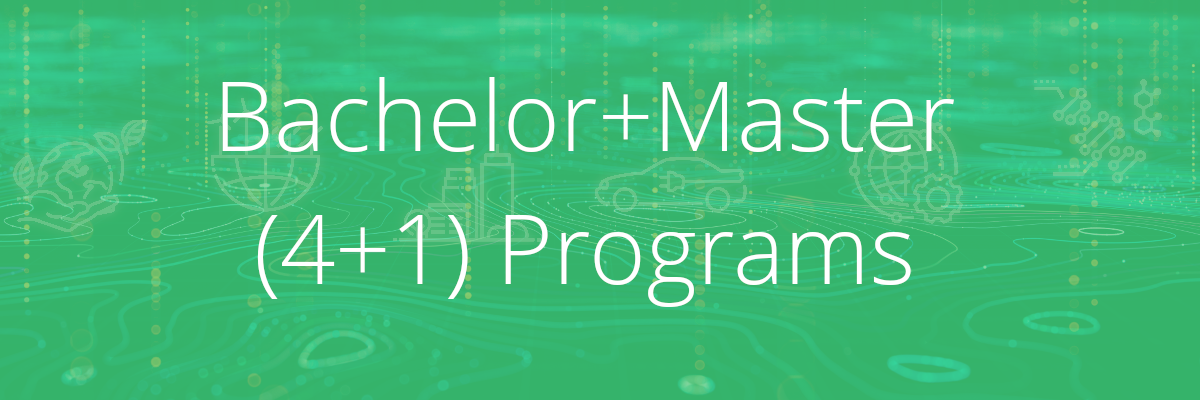AI-Integrated Environmental Engineering
The future of environmental engineering with AI for sustainability, climate resilience, and smart cities.

The 4+1 Pathway is a fast-track academic structure that allows qualified undergraduate students to continue seamlessly into the Master of Engineering in AI-Integrated Engineering, completing both degrees within five years.
This pathway ensures that:
| Year | Study Focus |
|---|---|
| 1–3 | Core undergraduate coursework in your home department + AI core electives |
| 4 | Undergraduate capstone project with AI integration + Master’s level AI courses |
| 5 | Master’s-level AI courses + Thesis |
The detailed study plan for each track will be available soon. You can see the descriptions for the AI core electives. Also see the information of the Master of Engineering in AI-Integrated Engineering program.
To continue into the Master’s year, you must:
Admission is selective and competitive, ensuring that only committed students proceed.
Explore each track to see how AI can amplify your engineering journey:
Curriculum accepting students in academic year 2026:
Curriculum accepting students in academic year 2027:
This program is part of the AI-Integrated Engineering Program (AIEP) at Kasetsart University.
The future of environmental engineering with AI for sustainability, climate resilience, and smart cities.
The next-generation industrial engineering program focused on smart factories, logistics automation, service operations, and decision intelligence.
The next-gen materials engineering program for smart manufacturing, semiconductors, and AI-powered innovation.
The future of automation and robotics lies where mechanical systems meet intelligent algorithms.
Civil Engineering for the AI age—designing intelligent, sustainable, and data-driven infrastructure.
Preparing next-gen chemical engineers for data-driven innovation in chemical, food, pharmaceutical, and energy industries.
Redefining electrical systems with smart energy, embedded AI, autonomous control, and intelligent communication.
Transforming Water Resources Engineering with AI and Data for Sustainable Water Security.